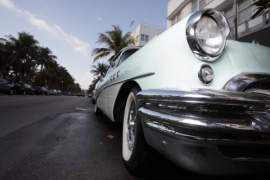
DUI At A Glance

• DUI class of offenses
DUI offenses refer, in the overall context of the legal and political jurisdiction of the United States legal system, to the offense of “driving under the influence.” This offense may refer to an instance when a driver is pulled over or otherwise suggested as having allowed the consumption of alcohol based intoxicants to affect his or her ability to competently and safely operate a motor vehicle. Alternately, DUI charges might also be pressed against individuals similarly impaired in their abilities to competently and safely drive cars in the event that they are claimed or proved to have consumed narcotic substances. The illegality or legality of the instance of substance usage suggested or proven by the legal application of a DUI charge might be used as a means to furnish further grounds for the pressing of legal charges, based either on the nature of the substance involved itself or on the legal limitations inherent in the particular individual in question.
• Alternative prosecution and conviction levels on DUI charges
The specific way in which DUI charges might be pressed against the individual claimed or proven to be at fault could vary in accordance with whether a felony or misdemeanor is pressed against the defendant. This determination, to be made by the prosecuting legal authorities in accordance with the suspected offense, might be affected by whether the DUI offense is associated with further ill-effects beyond the statutory violation.
o DUI felonies
DUI charges might be pressed against defendants involved in this way in the U.S. court system in the specific form of felonies, as carry the most potentially heightened level for prosecutorial efforts to be undertaken and penalties to be consequently applied. DUI felony level charges could, for one, be noted as a potential source of a term of imprisonment in jail being pressed against the defendant involved in the case.
o Alternative route for DUI cases: misdemeanor charges
If the application of DUI charges against a particular defendant represents the first instance in which that individual has been faced with charges of this kind, or serious criminal charges of any kind, then the DUI case may be more reasonably expected to take the course of prosecution directed in the form of a misdemeanor. Moreover, misdemeanor-level DUI charges should only be expected as a legal option for the case to be transacted and the penalties to be accordingly faced in the absence of other causes for legal complaint against the defendant, such as the resultant infliction of loss, injury, pain and distress against other drivers, passengers, or pedestrians.
• DUI/DWI distinction (and lack thereof)
When understanding the options open to an effort directed toward mounting a defense against the application of DUI charges, individuals might relevantly refer to whether or not any distinction is observed by the administering legal authorities between DUI and DWI charges. The latter course for a legal case, which refers to “driving while intoxicated,” could conceivably be offered as a less serious charge, but only in some jurisdictions.



















